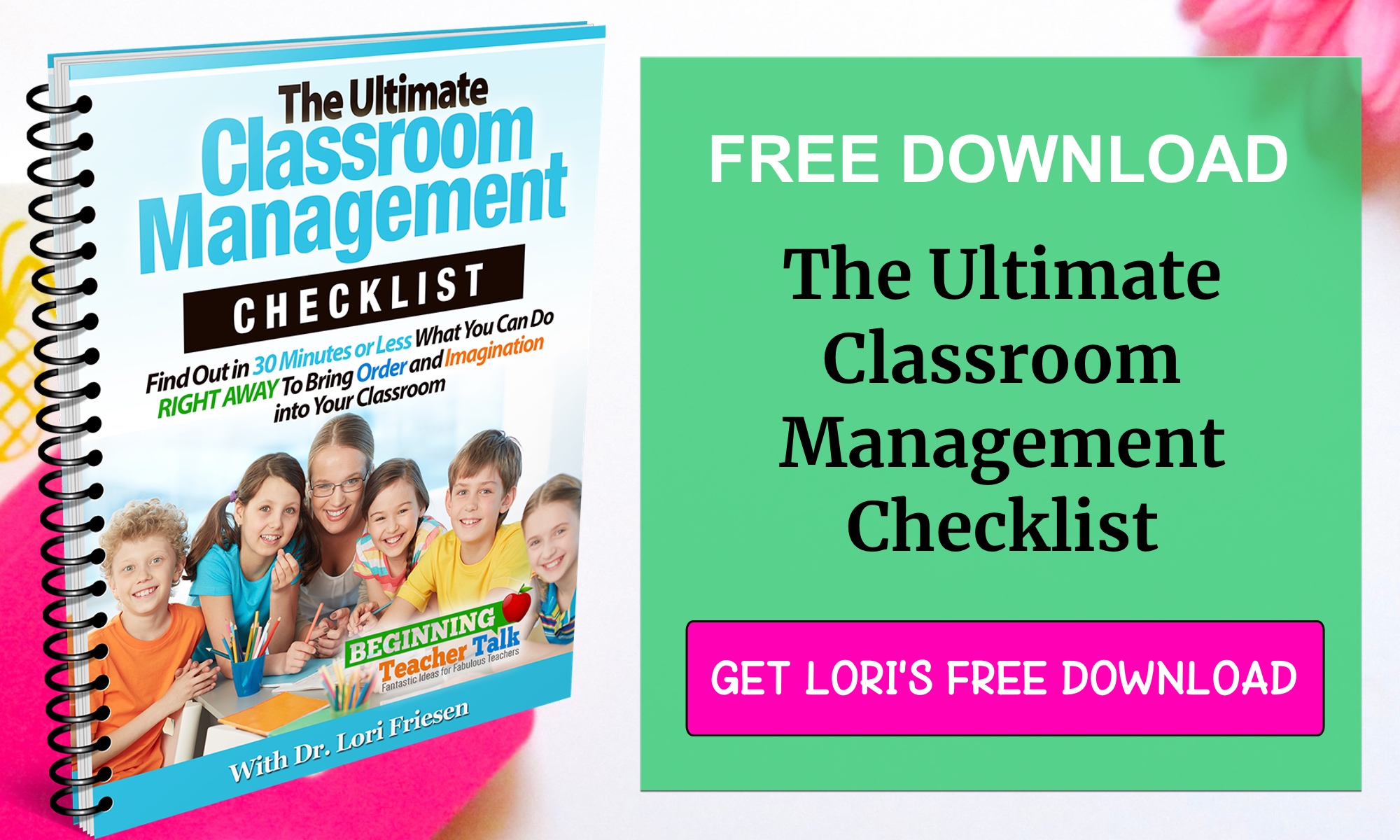Natural Consequences: Part Two

Click the play bar below to listen to this week's show now:
Show Notes:
In episode 159, I broke down what natural consequences are and I gave you some specific examples of how this works in your classroom. If you haven’t listened to that episode, I highly recommend that you go back and listen to that first because it is going to give you a foundation to what I’m discussing today.
As a recap of episode 159, I clarified that when I recommend that you ignore the student behaviors that you don’t want, and focus on the behaviors that you do want, that does not mean that you don’t give consequences. While focusing on behaviors that you do want is a wonderful way to ensure your classroom becomes a positive space for learning, the disruptive behaviors that we don’t want to see will never stop if we don’t implement consequences.
If you've ever watched a teacher who has a really strong handle on managing their classroom, you're actually doing both praising and reminding at once. You're looking for, and praising, all of the good and positive things that you're seeing inside your classroom. However, you're also giving gentle, immediate, and often very subtle reminders and consequences to students who are not following the rules. Talk about multi-tasking, right?
If it feels confusing to figure out how to give consequences while also praising positive behavior, I get it! That’s why I'm going to walk you through this technique and give you some very specific examples of how you can move from gentle reminders to firm consequences while you're teaching inside your classroom. I’ll break down exactly how this looks, step by step, in practice.
Having a plan for different types of natural consequences is so important. Even more important is actually following through on those consequences consistently. When you do this, you’re building habits and you’re teaching your students how to treat you.
While sometimes in the moment, it seems easier to ignore certain behaviors, letting things go is only going to make things harder for yourself throughout the school year. The kindest thing you could do for your students is to be consistent when it comes to your expectations and to how you run your classroom.
It's important to say, that while I’m going to give you several effective strategies to use, there are often circumstances in kids’ lives that are beyond our control as teachers. Children have been exposed to more trauma and more grief over the past couple of years than they've ever been exposed to, and it’s playing out in classrooms in very challenging ways. So, if a child’s behavior moves beyond something that you feel you’re qualified to manage, it is so important that you ask for the help you need.
Some children may need outside support, such as counseling. If a behavior has become unmanageable for you inside your classroom, please do not try to continue to figure it out all by yourself. Involve your administration, involve the parents, and get to the root of the problem.
If you want more support with creating your classroom management plan, be sure to check out my R.E.A.D.Y. for School Academy, which I will be opening the doors to this Spring!
In the meantime, you might want to check out the book Conscious Classroom Management by Rick Smith and Grace Dearborn. This book gives one of the best examples I've seen of how to break down examples of consequences, from gentle reminders all the way up to more firm consequences.
Inside this week's show, you'll learn:
- Six ways that you can troubleshoot some of the most common classroom management challenges that you have when students are being disruptive during a lesson.
- The secret to giving a natural consequence to a student without messing up the flow of an entire lesson.
- The importance of acknowledging and praising students when they turn their behavior around for the better.
- Why setting up a whole-class reward system of some kind will help to develop a positive classroom community from the start.
- Specific examples of what you can do if a child continues to be disruptive, even after trying all the tools in your behavior management toolbox.
- The three main reasons why children typically act out at school, and when to know if you need support from administrators.
Links & resources mentioned inside this episode:
- Purchase your copy of Conscious Classroom Management, by Rick Smith and Grace Dearborn.
- Download the FREE Ultimate Classroom Management Checklist.
- Invest in my Chaos to Confidence Classroom Management System.
- Invest in my Out-of-Control, Chatty Class Rescue Bundle.
- Join the waitlist for the R.E.A.D.Y. for School Academy.
- Join our Beginning Teacher Talk Private Facebook Group.
- Follow Dr. Lori on Instagram.
I hope this information is helpful as you prepare for your first, second, or third year of teaching. Until next time, remember, just because you're a beginning elementary teacher, there's no need for you to struggle like one.
💛 Lori
 Dr. Lori Friesen | Beginning Teacher Mentor
Dr. Lori Friesen | Beginning Teacher Mentor
Creator of the R.E.A.D.Y. for School Academy, Dr. Lori Friesen has mentored thousands of beginning teachers across the country through her workshops and courses. Host of the popular podcast, Beginning Teacher Talk, and creator of the innovative literacy program for 1st and 2nd grade, Dogs Help Kids Read and Succeed, Dr. Lori is dedicated to serving educators and inspiring learners. Learn more at drlorifriesen.com and at howdogshelpkids.com.
Want to listen on a different platform? Here are the links:
Click here to listen on Apple Podcasts.
Click here to listen on Spotify.
Click here to listen on Stitcher.
Click here to listen on iHeart Radio.
Related episodes you might enjoy:
- Natural Consequences: What Do You Do When Kids Don’t Listen?
- The Best Classroom Management Technique Ever: How to Get Your Entire Class’s Attention Instantly
- Classroom Management Hack: Ketchup, Mustard, & Pickles Folders
- Classroom Management Hack: Hand Sanitizer Bathroom Pass
- Classroom Management Hack: Cupcake Points
Follow:
Are you following my podcast? I release fresh, new content every single week and I don't want you to miss out! 💛 Click here to follow on Apple Podcasts.
Leave a Review ⭐️⭐️⭐️⭐️⭐️
If you are loving the podcast, I would be so grateful if you would leave me a review over on Apple Podcasts. Each time you leave a review, Apple Podcasts recommends my podcast to other new teachers so they feel a little less alone as they navigate their first few years of teaching. Just click here to review, select “Ratings and Reviews” and “Write a Review” and let me know how this podcast is helping you inside your classroom!
Stay connected for surprise goodies & updates!
Join our mailing list to receive the latest news from our team. 💛💕 Your information will not be shared.












